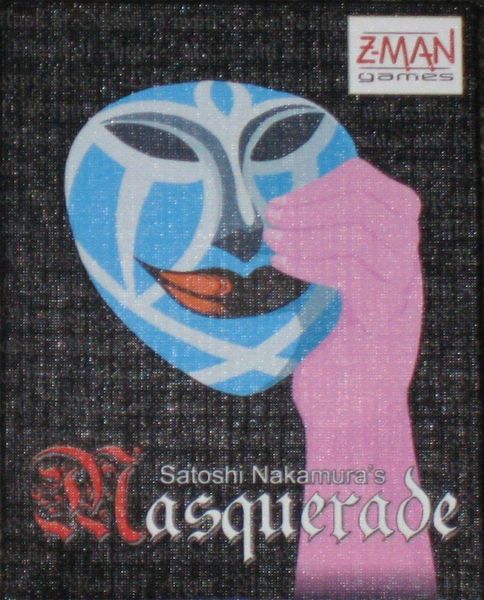Masquerade (2003) Board Game
Masquerade is a board game that was released in 2003 by designer Satoshi Nakamura and artist Polture Umeyama. It is published by Yuhodo, Inc. The game falls under the categories of adventure, card game, deduction, fantasy, fighting, and music. With a playtime of 90 minutes, Masquerade is designed for 3 to 5 players aged 10 and up.
Game Components of Masquerade
– Mask cards with secret victory conditions
– Dancer cards with power values and special abilities
– Order cards determining play order and granting special powers
– Stage cards forming the game board
– Guardian/Treasure cards for challenges
– Event cards introducing random elements
– Emblem cards providing victory points
– Spell cards drawn randomly during the game.
How To Setup Masquerade
To set up **Masquerade**, each player is secretly dealt a Mask card, revealing a secret victory condition. Players then receive an Order card to determine the initial order of play and select a Dancer card in reverse order. Each Dancer card has a specific power value and special ability. The game board is formed using six Stage cards, and the Guardian, Event, and Spell decks are placed nearby. Emblem cards are spread out to be claimed during the game.
Gameplay Mechanics and Game Objective
– Order Phase: Players choose new Order cards to determine play order and gain special powers.
– Stage Phase: Players move to different stages on the board.
– Spell Phase: Players can draw and play Spell cards.
– Challenge Phase: Players engage in duels using Spell cards and Dancer abilities.
– Event Phase: Event cards are resolved, introducing random elements.
Player Experience
**Masquerade** is a tight resource-management game where players balance life, hand of spells, and victory points. Each round is a tactical battle to optimize resources and plan moves ahead. The game features randomness, particularly in the drawing of Spell cards, which encourages slowing down leaders and creates risk-reward gameplay. Players must assess risks and rewards in challenges, adding a layer of strategy and unpredictability.
Pros
Cons
Personal Thoughts on Masquerade
**Masquerade** is ideal for players who enjoy complex card games with deep strategic elements. It is suited for those who appreciate resource management and the balance between short-term tactics and long-term strategy. However, it may not be the best fit for casual gamers due to its complexity and the need for careful planning. If you’re looking for a game that challenges your strategic thinking and offers a unique blend of randomness and strategy, **Masquerade** is definitely worth considering.
We are supported by our audience. When you purchase through links on our site, we may earn an affiliate commission, at no extra cost for you. Learn more.

